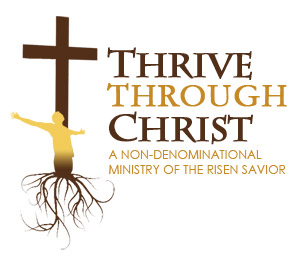“God’s ways are higher and better than man’s.” (Isaiah 55:8-9)
God commands His people to follow Him – not the traditions of man. He commands us in Revelation 18:2-4 to flee from the pagan traditions and customs of this world. “With a mighty voice he shouted: Fallen! Fallen is Babylon the Great! She has become a home for demons and a haunt for every evil spirit, a haunt for every unclean and detestable bird. For all the nations have drunk the maddening wine of her adulteries. The kings of the earth committed adultery with her, and the merchants of the earth grew rich from her excessive luxuries.” Then I heard another voice from heaven say: Come out of her, my people, so that you will not share in her sins, so that you will not receive any of her plagues.”
The term Halloween (and its older rendering Hallowe’en) is shortened from All-hallow-even, as it is the evening of/before “All Hallows’ Day”, also known as “All Saints’ Day”. It was a day of religious festivities in various northern European Pagan traditions, until Popes Gregory III and Gregory IV moved the old Christian feast of All Saints’ Day from May 13 to November 1.
The modern holiday of Halloween has it’s origins in the ancient Gaelic festival known as Samhain. The Festival of Samhain is a celebration of the end of the harvest season in Gaelic culture, and is regarded as ‘The Celtic New Year’. Traditionally, the festival was a time used by the ancient pagans to take stock of supplies and slaughter livestock for winter stores. The Ancient Gaels believed that on October 31, the boundaries between the worlds of the living and the dead overlapped and the deceased would come back to life and cause havoc such as sickness or damaged crops. The festivals would frequently involve bonfires, where the bones of slaughtered livestock were thrown. Costumes and masks were also worn at the festivals in an attempt to mimic the evil spirits or placate them.
Throughout the early years of the Catholic Church, worshippers observed special anniversaries for martyrs who had been executed for their beliefs. Soon there weren’t enough days in the calendar year to dedicate a specific day for each individual martyr, so the Catholics observed one feast day for all martyrs.
So the Catholic Church, with the backing of the government, decided to “white-wash” a Roman holiday. Tired of admonishing the Romans for engaging in drunken revelries as an excuse to honor the dead (and desiring more converts), Pope Boniface IV, in A.D. 609, declared Feralia to be Christian. Instead of honoring all of the dead, they were now just to honor dead “saints.” Instead of drunken revelries, it would be a day of prayer and meditation. Instead of calling it Feralia, he changed it to All Saints’ Day. And he moved the date of its observance from February 21 to May 13.
Meanwhile, the Celts were still observing the festival of Samhain in one form or another. The Catholic Church took note and Pope Gregory IV (827-844) attempted to replace it by moving All Saints’ Day from May 13 to November 1—the same day as Samhain—officially extending the festival to the entire church. All Saints’ Day became known as All Hallows Day, while October 31 became All Hallows Eve and, eventually, Halloween.
As with the festival of Samhain, the Catholic believers celebrated with huge bonfires, parades and costumes, masquerading as dead saints, angels and demons. Altogether, All Saints’ Eve (October 31), All Saints’ Day (November 1), and All Souls’ Day (November 2) combined into Hallowmas—mirroring the Celtic Vigil of Samhain. What was proclaimed Christian and clean and wholesome originated from drunken revelries, pagan superstitions and false doctrines dating back to the Garden of Eden.
While honoring saints is certainly acceptable to God, engaging in pagan traditions clearly is not. Believers are called to follow in Jesus’ footsteps as they spread the good news about His return. Finding ways to achieve this through pagan traditions is key to fulfilling one’s mission.
Halloween is upon us, for Christians essentially a time of year much like any other, an opportunity to be a witness and to minister to those in need. I invite you to go out into the world and fulfill your mission by sharing the history of halloween and it’s meaning to Christians rather than get caught up in a worldly tradition without meaning. Let’s pray!
Father God;
We thank you for all that surrounds us, for your love.
We pray you will strengthen our Faith and our minds
So we can live righteous lives walking in your footsteps.
Lord we pray you will continue to guide us
And inspire us to share the meaning of this upcoming tradition,
We pray that you will empower us to be witnesses
In times when distractions roams above us.
God please forgive our sins and those of our peers
See us through another week on your magnificent earth
And lead us to everlasting life in Heaven as only you can.
Thank you all mighty God for your presence in our lives.
Praise God,
Amen!
This message was written by Elizabeth St.Pierre
Email: ElizabethStPierre@ThriveThroughChrist.com
Phone: 727.674.5681
